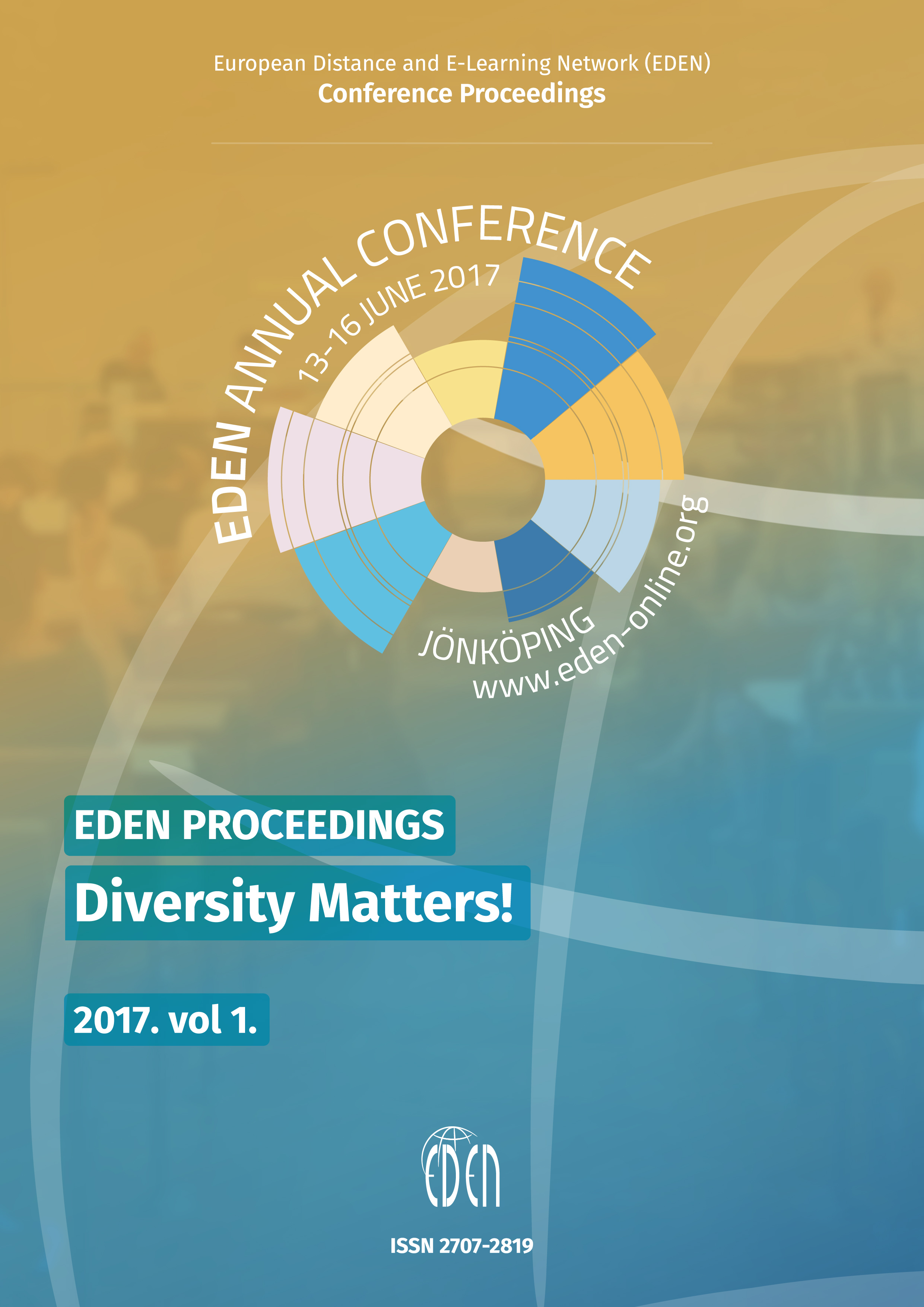Toward a Mobile Open and Social Language Learning Paradigm
Toward a Mobile Open and Social Language Learning Paradigm
Author(s): Timothy Read, Elena Barcena, John Traxler, Agnes Kukulska-HulmeSubject(s): Social Sciences, Education, Higher Education
Published by: European Distance and E-Learning Network
Keywords: Collaborative learning; Distance and e-learning methodology; Language education; Learning innovation; MOOCs
Summary/Abstract: With the widespread availability of broadband access to the Internet, the use of online multimodal learning resources has increased significantly. E-Learning has provided an opportunity for courses to be structured around these resources, together with communication tools like chats and forums. However, the great majority of these courses are run on “closed” institutional platforms, where general access is impossible. The Web has gradually evolved into a social infrastructure where most tools and services either have a component where users can engage in discussions or give their opinion, or provide links to the main social networks. The popularity of this infrastructure has led people to want to apply it to their learning needs. Gradually, online courses are beginning to move away from closed platforms onto open ones, where social interaction between the students has become a key element in the learning process. As awareness grows of the existence of such courses, the number of students taking them, or signing up to take them, has dramatically increased in the last decade. Hence, massive open social learning has become an educational phenomenon that is receiving a great deal of attention within the expert educational community (Kop, 2011).The application of massive open social learning to the domain of languages has only just begun, and existing research highlights both successes and problems still to be solved (Barcena et al., 2015). One key problem here is that developing second language capabilities is not purely a knowledge-based process but one that requires considerable interaction with other (preferably, but not necessarily native) speakers. The opportunities for such communication in massive open social learning exist but are limited to the current nature of the learning design (which oscillates between very tightly controlled interaction related to a given task, which limits autonomous learners, or completely unstructured interaction, where less competent learners can easily feel lost or isolated) and the need for the learners to be sat in front of their computers.Mobile technology is becoming a standard part of life and it has been estimated that by 2020, 80% of all adults in the world will carry some form of it around with them (Evans, 2014). Many people have mobile devices these days but do not have a computer, so the results of the research presented in this article will offer an opportunity for a very large number of people to learn a second language using mobile devices. Furthermore, potentiating the role of mobile devices helps to further blur the boundaries between standard online learning activities, i.e., digital learning, and what has been termed digital living (Read & Barcena, 2015). This refers to an increase in the flexibility of how people mix their learning with their everyday activities and highlights the benefits of this combined approach.In the SWITCHED-ON project (The empoWerment of maSsive open socIal language learning through mobile TeCHnology: harnEssing interactions, transcenDing bOuNdaries), the authors are analysing the affordances of open social learning, in the widest sense, for second languages. This ongoing project is funded by the Spanish Ministry of Economy and Competitiveness (Programa Estatal de Fomento de la Investigación Científica y Técnica de Excelencia, Subprograma Estatal de Generación del Conocimiento; ref. no. FFI2016-80613-P). In this work, mobile technology (including MALL) is conceived to be not just a tool that can be used for undertaking certain tasks (in an unstructured and loosely controlled manner), but as the main way in which second language learners can interact and carry out their learning effectively (Barcena & Read, 2014; Barcena & Read, 2015; Read et al., 2015). The hypothesis underlying the work in this project is that given the complex, hectic and mobile nature of 21st century societies, open social language learning can take place with a backbone defined by mobile technology. This will represent a new paradigm that is both inclusive for a wider range of language learners than is the case with current open online courses, and is more effective, since it blurs the boundaries of everyday life with learning. It is envisaged that this will happen through the combination of mobile online interaction with integrated supportive MALL practices. In this article, an initial exploration of some of the issues related to the conceptual space of possibilities for such a paradigm are discussed as a step toward its formalisation in a systematic and controllable manner.
Journal: European Distance and E-Learning Network (EDEN) Conference Proceedings
- Issue Year: 2017
- Issue No: 1
- Page Range: 73-81
- Page Count: 9
- Language: English

